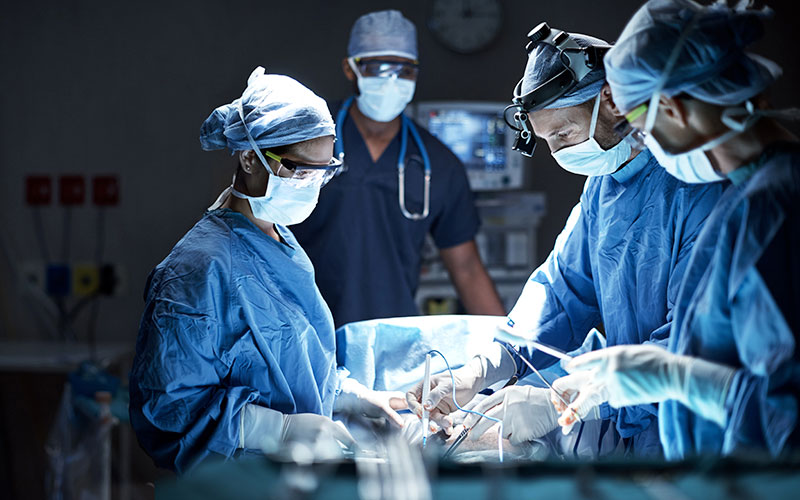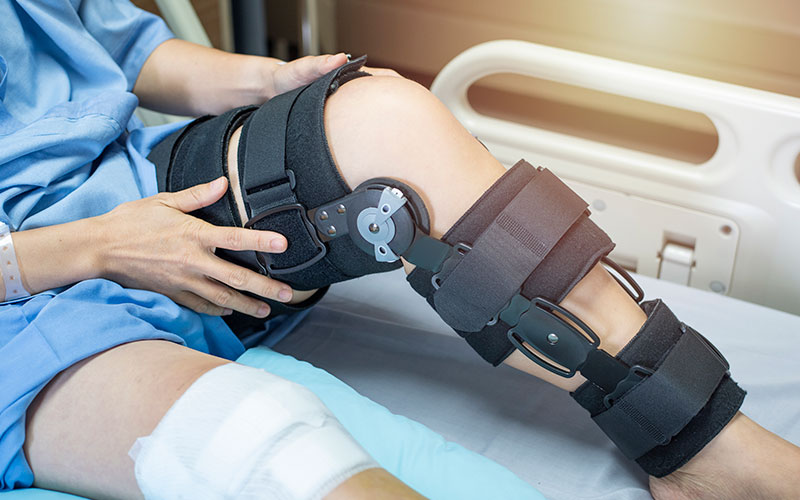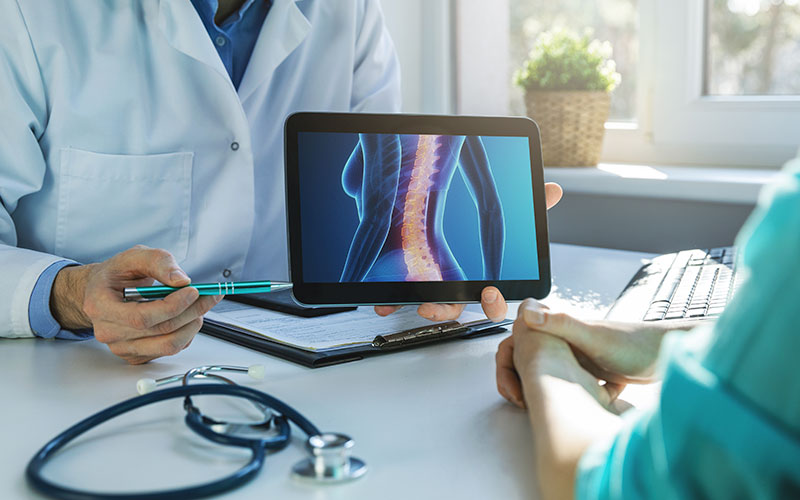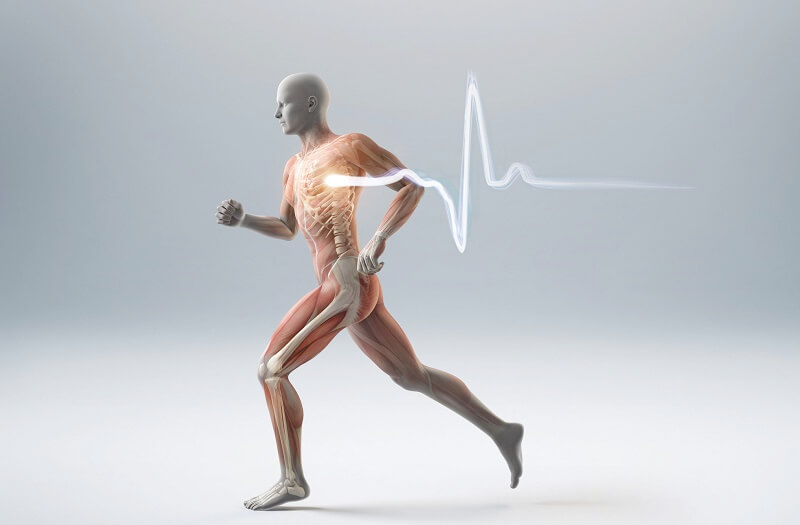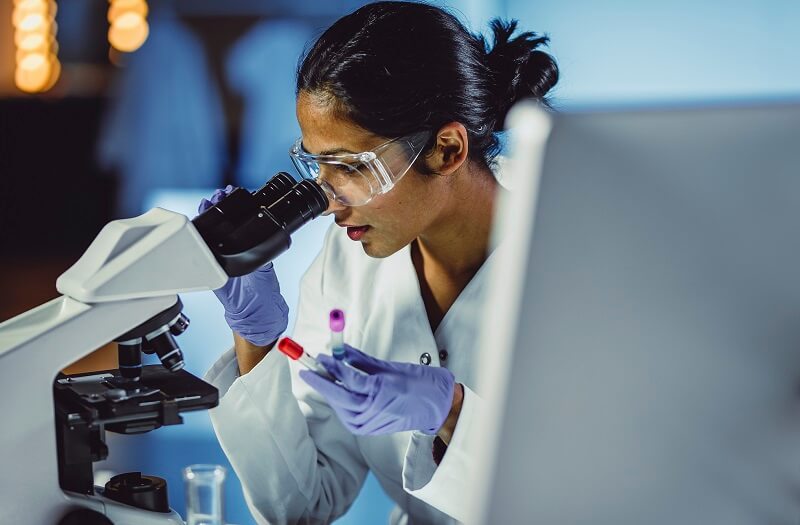- Home
- Growth Hormone
- Growth Hormone
- Growth Hormone Deficiency
- Growth Hormone Therapy
- Growth Hormone Injections
get startedThe Most Effective Hormone Replacement TherapiesCan HGH Help Patients Recover From Surgery?
Several high-profile clinical trials have shown that human growth hormone can aid in recovering from surgery.
Millions of people undergo various surgical procedures every day. Surgery can be pre-planned or an emergency response to sudden illness, injury, or other trauma. Even when surgery is successful, most surgical procedures require long recovery periods of rest and physical therapy. This is especially true of surgeries used to repair joints, ligaments, bones, and other sports-related injuries.
In such cases, the use of human growth hormone (HGH) is showing promise in helping patients recover from surgery.
How Does HGH Help in Recovery From Surgery?
As you can guess from its name, the main purpose of HGH is cellular growth. When we are growing from a child into an adult, that ability of HGH is mostly turned to creating new cells that allow us to grow into a healthy adult. Even once we are adults, HGH continues that function, but now its power to regenerate cellular tissue is turned towards healing and the replacement and repair of cells that die due to age, disease, or injury. It is because of HGH’s ability to repair and renew cellular growth that it can aid in the recovery from surgery.
The production of new cells is essential to the way that your body heals. That aspect of the healing and recovery process is known as “proliferation.” HGH drives this process helping to repair damaged tissue anywhere in the body at the cellular level.
According to medical researchers, HGH does this by triggering a specific gene that scientists have identified as Foxm1. The discovery of the gene occurred in a study that found that in older mice with induced hip injuries. HGH stimulated the Foxm1b gene to stimulate a greater output of HGH and IGF-1, which allowed the mice to recover from their injuries as quickly as substantially younger mice.
This was one of the first studies to suggest that the use of HGH to help speed the recovery from wounds and injuries. Furthermore, it and other studies since have paved the way for using growth hormone therapy not only for the healing of trauma-caused wounds and injuries but in helping patients’ recovery from surgical procedures.
Even when a surgical procedure is considered a complete success, the patient can expect a protracted period of healing and convalescence. Could HGH be effective in speeding up the time it takes to recover from surgery? Because of its impact on cellular proliferation, many doctors and researchers believe the answer to that question is “yes.”
HGH can speed up the recovery of the original injury that required surgery. It can speed the healing of surgical wounds. It can help to reduce inflammation and help prevent post-surgical bacterial infection, all because of its ability to boost your body’s healing and immune response.
A typical double-blind study of over 200 patients who had major surgical procedures found that the group that was given HGH therapy after surgery fared much better overall than the placebo group. The patients who were given HGH after surgery preserved more of their lean body mass. Furthermore, the scientists reported that the HGH therapy group experienced less postoperative fatigue and a lower risk of postoperative infection rate due to improved immune defenses.
HGH is instrumental to how your body heals.
Can HGH Help to Repair Tendons and Ligaments?
The use of HGH to speed recovery and healing has been studied most extensively in sports-type injuries to joints, tendons, and ligaments. Tendon and ligament injuries are some of the most common injuries among athletes, active young people, and older adults. A tear of the ligaments of the knee, shoulders, or elbows is a painful and debilitating injury that is usually followed by a slow and painful healing process. However, HGH there is evidence that HGH can be used to speed up the recovery and repair of such injuries.
Several studies involving mice models have shown how HGH can speed the recovery of torn and damaged ligaments and tendons. In these studies, the mice that were given HGH had lower levels of inflammation, and their damaged joints returned to their normal physical functions faster.
There have been several human studies that have demonstrated that HGH can also aid in the repair of tendons because it can increase the formation of collagen.
Can HGH Help to Heal Wounds?
Another area where HGH can help in the recovery from surgery is wound healing. Thanks to HGH’s powerful impact on cellular regeneration, it has been widely studied as a way to speed healing of traditional wounds and to treat non, or slow-healing wounds. Many human studies have been tested HGH for wound healing, and the results have been exceptional.
One study in children with severe skin burns compared the effect of growth hormone therapy to placebo. HGH accelerated burn wounds healing and skin repair leading to 25% quicker recovery. According to the researchers, HGH therapy can significantly shorten the total length of hospital stay for patients with wounds and burns.
Another study revealed that growth hormone therapy could increase survivability in patients with severe wounds. Patients receiving growth hormone in addition to their therapy had 11% lower mortality when compared to controls who received only standard therapy.
A study by the National Institutes of Health recently concluded, "In summary, HGH used in conjunction with adequate nutrition and protein intake clearly results in increased anabolic activity and will positively impact wound healing by increasing net protein synthesis in catabolic states. There is data that HGH can directly improve wound healing.”
Can HGH be Beneficial in Healing Other Kinds of Injuries?
In addition to being quite beneficial in the healing of wounds and ligaments, HGH was also shown to have positive results in the healing of back pain and back injuries.
A recent study reported on by The Spine Institute followed 60 subjects with lingering low back pain. Patients received injections of HGH prior to participating in exercises specific to their discomfort and loss of range of motion. “Patients who completed the year-long study reported a three-point reduction in their pain based on the Mankoski Pain Scale, a 1-10 ranking of discomfort based on specific descriptions for each pain level. Nearly half reported significant improvement.”
The researchers concluded that they believed the patients saw significant improvement in range of motion and decreases in pain because of HGH’s ability to enhance collagen production. Collagen is a protein that is noted for its ability to strengthen tendons, ligaments, and other connective tissues that provide support to bones and joints.
This data suggests that HGH could also help to speed the surgical recovery of patients undergoing back or spinal procedures.
What Do the Studies Have to Say About HGH and Surgical Recovery?
An early study on the use of HGH for surgical recovery was reported in 1999 when 24 young patients who underwent ileoanal J-pouch surgery for ulcerative colitis received either HGH or a placebo before and after their operation. The randomized study consisted of 12 IU of HGH per day for two days before the surgery and seven days post-op. The purpose of the study was to test recovery time, muscle strength, and postoperative fatigue.
The results of the study are as follows:
- Ten days post-op: Four-limb muscle group strength reduced by 17.1% in those receiving a placebo but only 7.6% in those who received HGH therapy.
- 90 days post-op: Individuals who received the placebo were still at a 5.9% deficit in muscle strength compared to a return to baseline values for those who received the HGH.
- Both 30 and 90 days post-op: Individuals in the HGH group reported less fatigue than the placebo patients.
- 90 days post-op: HGH patients regained more lost lean tissue mass than those receiving the placebo.
A study published in 2004 looked at the effects of HGH following hepatectomy in patients with hepatocellular carcinoma with liver cirrhosis. The randomized study showed that human growth hormone could improve liver regeneration and protein synthesis following the surgery.
Perhaps the most important study looking at whether HGH can help recovery from surgery is the recently completed one by the University of Michigan. With funding provided by Mark Cuban, owner of the Dallas Mavericks, the long-anticipated results of the years-long study looking at the use of HGH for healing following ACL surgery were released in May of 2020. According to Cuban, in the group using HGH post-surgery versus the placebo group, "there was a significant improvement in their recovery time and getting back to full strength. The study has published in The American Journal of Sports Medicine,and among its other positive conclusions, it stated, "human growth hormone treatment after ACL reconstructive surgery can prevent the loss of muscle strength in the knee." Christopher Mendias, Ph.D., ATC, the lead researcher on the project said that he hopes the results of this study allow for “revisiting reevaluation of the World Anti-Doping Agency and sports agencies’ ban on HGH.”
HGH has been shown to speed the recovery and lessen post-surgical complications for several surgical procedures.
Now that you understand a little more about how HGH can improve recovery from surgery, why not contact us today and learn more about the many wonderful benefits of growth hormone replacement therapy.
- Growth Hormone Therapy








